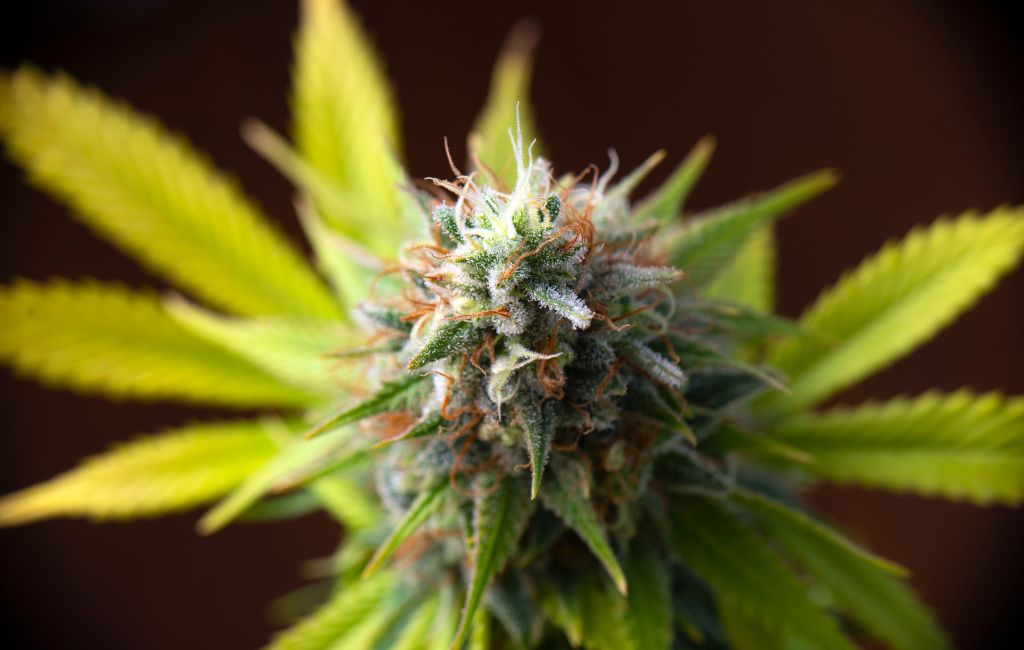THCa Herbal Remedy: Plant-Based Healing
In recent years, the exploration of plant-based remedies has gained significant traction, with many individuals seeking natural alternatives for health and wellness. Among these, THCa, a non-psychoactive compound found in cannabis, has emerged as a promising THCa herbal remedy. This article delves into the potential benefits, applications, and scientific backing of THCa as a plant-based healing agent.
Understanding THCa: The Basics
THCa, or tetrahydrocannabinolic acid, is a cannabinoid found in raw cannabis plants. Unlike THC, its more famous counterpart, THCa does not produce psychoactive effects. This makes it an attractive option for those looking to harness the therapeutic properties of cannabis without experiencing a high.
THCa is abundant in fresh cannabis and converts to THC through a process called decarboxylation, which occurs when the plant is heated. This transformation is why raw cannabis consumption is necessary to benefit from THCa’s unique properties.
Potential Health Benefits of THCa
Research into THCa is still in its early stages, but preliminary studies and anecdotal evidence suggest several potential health benefits:
- Anti-inflammatory Properties: THCa has shown promise in reducing inflammation, which could be beneficial for conditions like arthritis and inflammatory bowel disease.
- Neuroprotective Effects: Some studies indicate that THCa may help protect brain cells, offering potential benefits for neurodegenerative diseases such as Alzheimer’s and Parkinson’s.
- Anti-emetic Benefits: THCa may help alleviate nausea and vomiting, making it a potential option for patients undergoing chemotherapy.
- Antioxidant Properties: The compound’s antioxidant effects could contribute to overall health by combating oxidative stress.
Case Studies and Research
While comprehensive clinical trials are still needed, several case studies and research efforts have highlighted THCa’s potential:
A study published in the British Journal of Pharmacology explored THCa’s anti-inflammatory effects, finding that it could reduce inflammation in animal models. Another research effort by the Journal of Neuroimmune Pharmacology suggested that THCa might offer neuroprotective benefits, although further investigation is required to confirm these findings in humans.
In addition to scientific studies, anecdotal evidence from patients and healthcare providers supports THCa’s potential. Many individuals report relief from symptoms such as pain, inflammation, and nausea after incorporating THCa into their wellness routines.
Methods of Consumption
To experience the benefits of THCa, consumption methods must preserve the compound’s raw form. Some popular methods include:
- Juicing: Fresh cannabis leaves and flowers can be juiced to create a nutrient-rich beverage that retains THCa.
- Raw Cannabis Smoothies: Blending raw cannabis with fruits and vegetables can create a healthful smoothie packed with THCa.
- Tinctures: Cold-pressed tinctures made from raw cannabis can be consumed sublingually for quick absorption.
Legal Considerations
The legal status of THCa varies by region, as it is derived from cannabis. In areas where cannabis is legal for medical or recreational use, THCa products are generally accessible. However, in regions with strict cannabis regulations, obtaining THCa may be more challenging.
It’s advisable to research local laws and consult with healthcare professionals before incorporating THCa into a wellness regimen.
Challenges and Future Directions
Despite its potential, THCa faces several challenges. The lack of extensive clinical trials means that much of the evidence is anecdotal or based on preliminary research. Additionally, the cannabis plant’s legal status in many regions complicates access to THCa products.
Future research is needed to fully understand THCa’s therapeutic potential and establish standardized dosing guidelines. As interest in plant-based remedies continues to grow, it is likely that more studies will explore THCa’s benefits and applications.
Conclusion
THCa represents a promising avenue in the field of plant-based healing. With its potential anti-inflammatory, neuroprotective, and anti-emetic properties, it offers a natural alternative for those seeking relief from various health conditions. While challenges remain, ongoing research and anecdotal evidence suggest that THCa could play a significant role in future wellness practices. As with any herbal remedy, consulting with healthcare professionals and staying informed about legal considerations is advisable when exploring THCa as a healing option.
